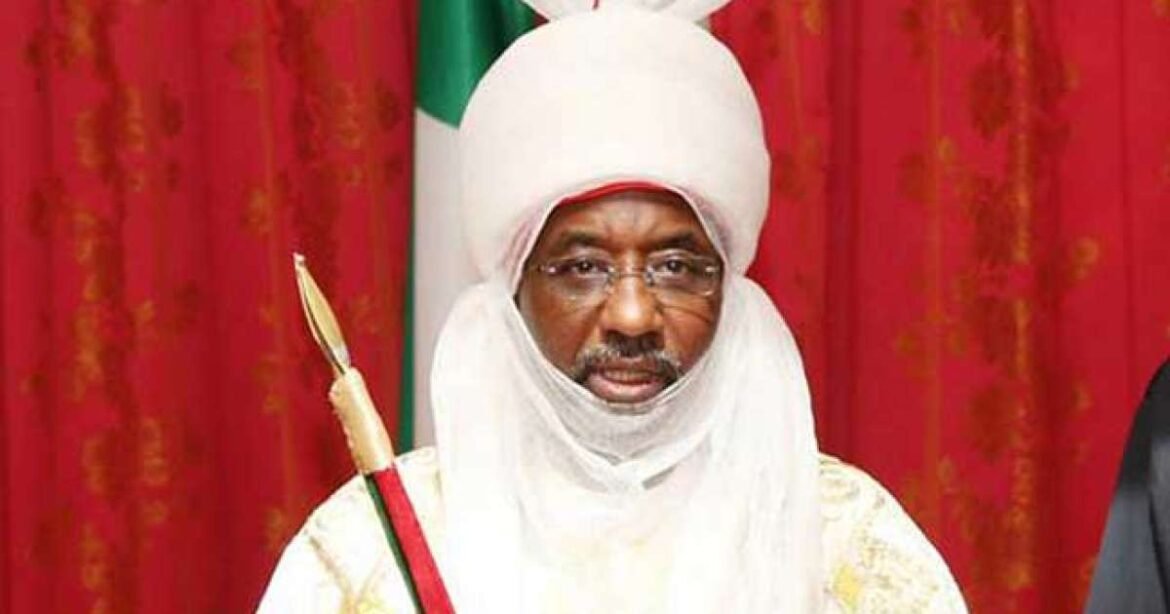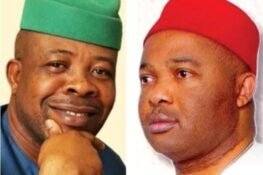The Emir of Kano, Muhammadu Sanusi II,
Sanusi, has called for legislation to arrest any abuses of the family system under the guise of culture or other considerations.
The emir who maintained that it was the responsibility of the man to take full care of his family, argued that this responsibility was covered by Islam, adding that even in divorce, a man must cater for the welfare of his children.
Sanusi spoke at the opening of a National Conference for Repositioning the Muslim Family for National Development in Abuja.
It was organised by the Nigerian Supreme Council for Islamic Affairs in conjunction with Future Assured, a pet project of the First Lady, Aisha Buhari.
President Muhammadu Buhari as well as foremost traditional and religious leaders like the Sultan of Sokoto, Muhammadu Sa’ad Abubakar III; the Ooni of Ife, Oba Adeyeye Enitan Ogunwusi, and Islamic scholars attended the event.
The Kano monarch said, “Everyday, wives are complaining about their husbands who claim their rights but abandon their responsibilities of marriage; women being divorced with their husbands not taking care of the children; and those children ending up on the streets, doing drugs, political thuggery, violent extremism.”
Sanusi insisted that the responsibility to enforce laws on marriage rights remained that of the state governors and legislatures, noting that irresponsible fathers should ordinarily be held accountable.
He wondered how a man would just think that his duties ended with marrying a woman and having kids.
Sanusi stated further, “Do you just marry and have children without any responsibilities? The reason Allah send His Prophets is that there should be justice in this world. Justice in our relationship with our maker and in our relationships with our fellow human beings.
“Justice means that everyone is given his rights. If a man takes the privilege of being the head of the family, he takes the responsibilities of being the provider of the family. You cannot take that privilege and a band the responsibilities.
“Is it a fact that a father has the right to force his daughter into a loveless marriage? That you have the right to batter you wife? You have the right to have children and push them to the streets to beg? That when you divorce your wife, you ask her and her children to pack and go back to her father’s house and that is the end?
“I can spend 100 years saying that it is wrong and un-Islamic for a man to beat his wife, but it is the governor and the state House of Assembly that should pass the law. It is the courts and the police that will make sure that the woman gets justice. The scholars and emirs cannot do that.
“It is only the governors who can pass the laws to say that when a man divorces his wife, it is his responsibility to provide for the children; it is the courts and security system that will enforce.
“So, the problem is these groups of human beings are those who will stand to answer to Allah if there is no justice.
“The traditional and religious leaders have an obligation to ask for justice, but those with the political powers have an obligation to put in place the processes that will make sure that these justices are complied with.”
He disclosed that in consultation with the Sultan, the first set of laws to address the issues had been packaged to be forwarded to Kano State Governor, Mr. Abdullahi Ganduje, to present to the legislature.








